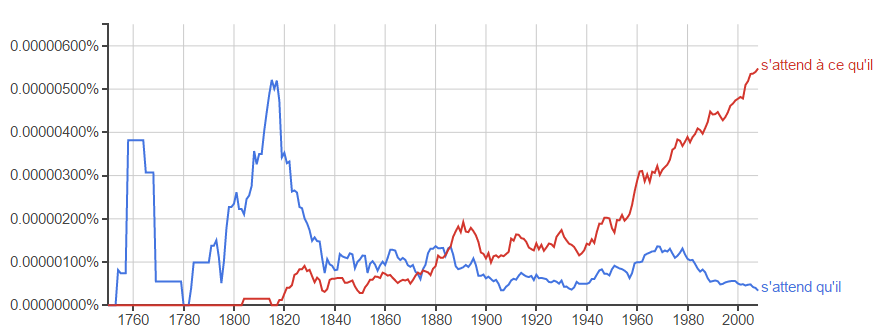The question is on ce que as highlighted in this passage from chapter 5 of La porte étroite by André Gide. The passage is from a letter by Alissa.
Voici ma dernière lettre, mon ami. Si peu fixé que tu sois encore sur la date de ton retour, elle ne peut beaucoup tarder ; je ne pourrais plus rien t’écrire. C’est à Fongueusemare que j’aurais désiré te revoir, mais la saison est devenue mauvaise, il fait très froid et père ne parle plus que de rentrer en ville. À présent que Juliette ni Robert ne sont plus avec nous, nous pourrions aisément te loger, mais il vaut mieux que tu descendes chez tante Félicie, qui sera heureuse elle aussi de te recevoir.
À mesure que le jour de notre revoir se rapproche, mon attente devient plus anxieuse ; c’est presque de l’appréhension ; ta venue tant souhaitée, il me semble, à présent, que je la redoute ; je m’efforce de n’y plus penser ; j’imagine ton coup de sonnette, ton pas dans l’escalier, et mon cœur cesse de battre ou me fait mal… Surtout ne t’attends pas à ce que je puisse te parler… Je sens s’achever là mon passé ; au-delà je ne vois rien ; ma vie s’arrête…
QUESTION
Does it mean what or that?
If it means that please explain the general principle by which it comes to mean that rather than, as it ordinarily does, what. Maybe it would help if you gave other instances where one would have to use ce que to mean that.
BACKGROUND
All the translations I have tell me that, in the sentence, Alissa tells Jerome (letter's addressee) not to expect that she should be able to speak to him (which makes perfect sense in the context). For example, by Dorothy Bussy:
And whatever you do, don't expect me to be able to speak to you.
Meanwhile,the pattern I have seen with the reflexives is that they use a preposition to take a noun, but get rid of the preposition in favor of que to take a clause. For example:
- se persuader de [something]
- se persuader que [a clause]
From this pattern, I might have expected:
Surtout ne t’attends pas que je puisse te parler…
But instead, the book has retained à and added ce.
Without context, I would have read the result to mean:
Above all, don't expect what I could say to you.
So I wonder, is there a (second) pattern of reflexives, by which "se + verb + preposition + ce que" has the same meaning as "se + verb + que" (i.e. the meaning of that)? If so, what are some other instances?
Or maybe, the Gide sentence literally means what I can say to you, and the translators are extrapolating to suit the context?

